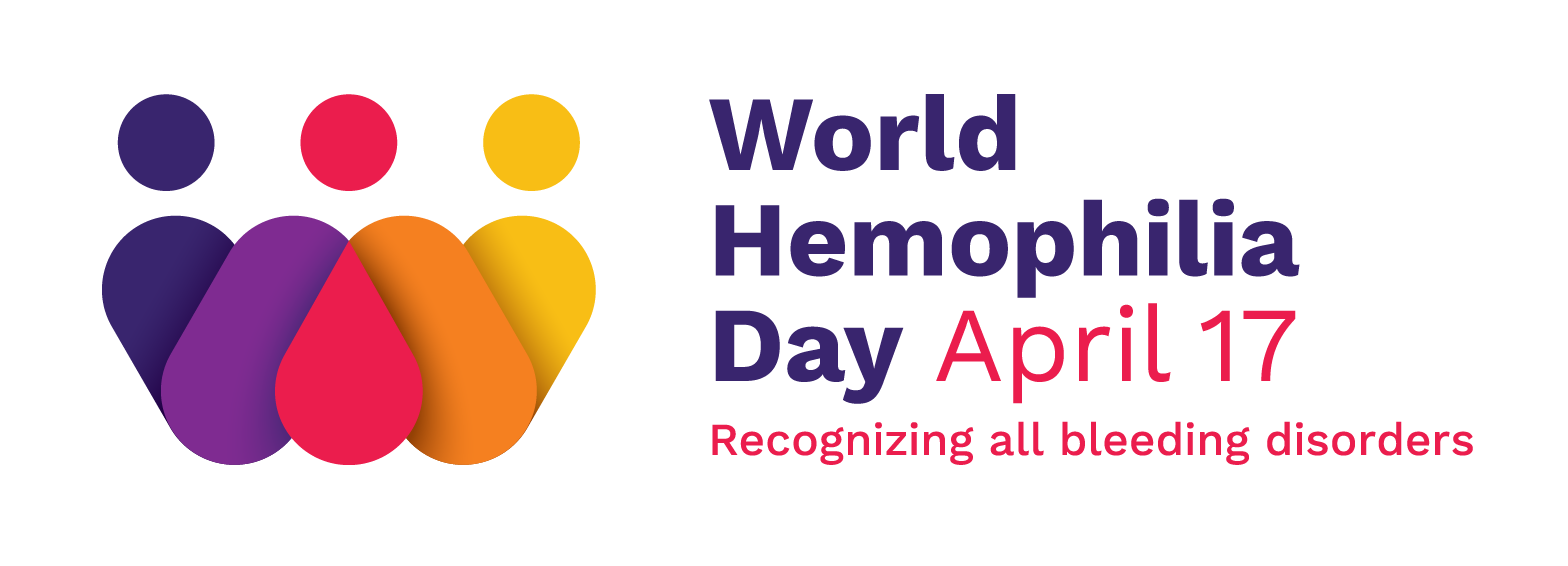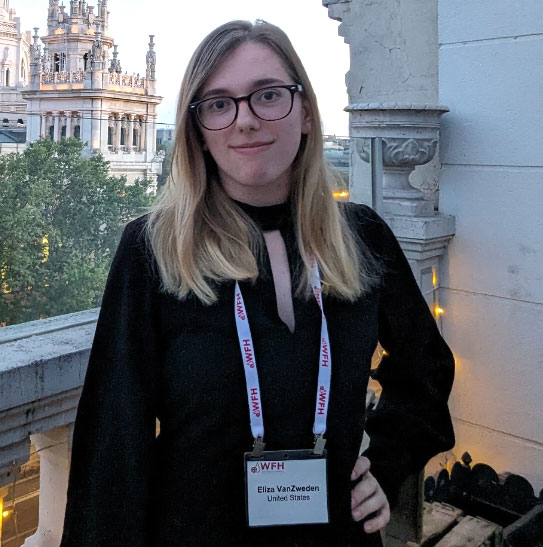My name is Eliza VanZweden, and I am writing to share my journey as a woman living with Glanzmann’s Thrombasthenia. GT is a rare bleeding disorder caused by a platelet defect in which platelets do not aggregate to stop bleeding.
I was diagnosed shortly after birth in 1999, due to symptoms of birth trauma. My path to diagnosis was certainly more painless than others, as my older brother had already been diagnosed with GT. Growing up, I struggled with many nosebleeds which would often bleed for days. For these and other serious bleeds like throat and GI bleeds, I received many on-demand platelet transfusions in my youth. There are very limited treatment options for GT patients, who are often left to resort to platelet transfusions, Factor VII bypassing agents, or tranexamic acid. There are no prophylactic options available for GT patients currently.
As I grew, I learned about the risks associated with platelet transfusions – they should only be used to stop bleeding in emergency situations due to the risks of developing antibodies. This left me anxious – my only treatment option could become ineffective at any time and fail me in an emergency situation when I need it the most. The trust that all my bleeds will be solved with a platelet transfusion was replaced with worry surrounding every bleed and debating every time I bleed how much is “too much” before I go in for treatment – does a nosebleed need to last 8 hours before getting a transfusion? Or should it be reserved for one that is bleeding for 4 days?
As I transitioned to adulthood, I have recently faced my most challenging symptoms. My health is no longer only focused on my bleeding disorder, but also encompasses my bone, reproductive, and mental health due to long time suppression of periods using hormonal therapies. More recently, I suffered a thrombotic event which left me with a portion of permanent blindness in one eye. This experience, as well as my struggles to control my nosebleeds and menstrual bleeding has left me hypervigilant of how being a GT patient affects every aspect of my health.
Although I still struggle with knowing when to get treatment for severe bleeds and don’t have access to prophylaxis treatment, preventative care has still been key in managing my bleeding disorder. This involves minimizing my risks in every activity or environment, and being prepared for every situation.
The bleeding disorders community I have come to know through the World Hemophilia Foundation and the National Bleeding Disorders Foundation (NBDF) in the United States has proved to be an invaluable support and resource. I have met others who have the same bleeding disorder as I have and am inspired to be an advocate for this community <3

